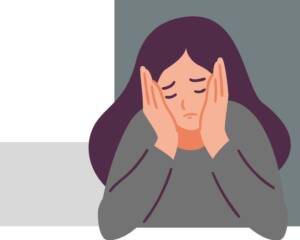Can Loneliness Make You Sick?

Surgeon General Vivek Murthy released a statement last week to bring attention to the public health crisis of loneliness, isolation, and lack of social connection.
“Lacking connection increases the risk for premature death to more than 60%. Put simply, this social disconnection increases the risk for premature death to the same levels as smoking up to 15 cigarettes a day,” Murthy said. Recent research cites that half of U.S. adults experienced loneliness every day, even before the pandemic.
BUT – listen to this! Confiding in others showed the STRONGEST association with protection against depression.
If you know someone experiencing isolation and loneliness, make a commitment to reach out. Offer to go to lunch. Send a text. Make a phone call. Stop by their house. Send a letter. Invite them over.
You just might be the person they open up to. One small gesture can change everything.
STARTING THE CONVERSATION:
So what can you do when you see someone struggling and you aren’t sure how to get him or her to open up to you?
The National Alliance on Mental Illness (NAMI) suggests first finding an appropriate space for the conversation. This means somewhere that person will be more likely to feel comfortable talking and without other people being able to listen in. Talk to the person as a friend, not a mental health expert. Don’t underestimate the power simply being there.
Actively listening is another tip from NAMI. Here are some examples:
- I’ve noticed that you’re [sleeping more, eating less, etc.]. Is everything okay?
- It seems like you’re going through a difficult time. How can I help you?
- I care about you and want to listen. What do you want to share about how you’re feeling?
- Who or what has helped you in the past?
- I noticed you seem [hopeless, desperate]. Sometimes people think of suicide when they feel this way. Are you?
- I can help connect you to a counselor or community resource that can help. You don’t have to do this alone.
Tell people you care. Tell them they are not alone. Then help them find help.
Go to https://namicentraltx.org/conversation/ for more tips.
Click on “Get Help” above.
